Opinion

When Gallup released its latest poll claiming that a majority of Americans favor stricter gun laws and even a ban on so-called “assault weapons,” it felt like déjà vu.
We’ve seen these polls before, always claiming widespread support for gun control. Yet, when voters step into the ballot box, their choices often tell a very different story. The 2024 November election was no exception: pro-gun candidates swept key races in landslides, and the American people handed the reins of power to politicians opposed to the gun control agenda.
So, how does Gallup continue to get it so wrong? Let’s break down the flaws in their polling methodology, the biases inherent in their questions, and the critical missteps that lead to misleading conclusions.
Polling a General Population, Not the Electorate
Gallup’s tiny polling sample (the estimated population, not counting illegal Immigrants, of the United States is approximately 345,426,571 people) consisted of just 1,023 adults, with only 930 who identified as registered voters and a mere 367 as gun owners. This approach inherently skews results by including individuals who may not even vote, let alone shape election outcomes. A poll of “U.S. adults” might capture theoretical opinions, but it fails to account for the voices of actual voters—the people who make real decisions at the ballot box.
Registered voters, and especially gun owners, tend to have stronger opinions on Second Amendment issues, and these opinions skew heavily against gun control. Gallup dilutes the sample with non-voters or people less engaged in political issues, paints a distorted picture of the electorate’s true stance.
Ignoring Issue Priority
Gallup’s survey measured general attitudes toward gun policies but failed to ask respondents whether gun control ranked high among their voting priorities. This is a fatal flaw in understanding public opinion. A person might support stricter gun laws in a vacuum but prioritize economic concerns, foreign policy, or trust in governance when deciding how to vote.
Historically, gun rights supporters are far more likely to vote based on Second Amendment issues than those who support gun control. This is why Democrats often struggle to make gun control a winning campaign issue, even in states where polls suggest majority support for stricter gun laws. Gallup’s failure to measure issue salience is a glaring oversight.
Bias in Question-Wording
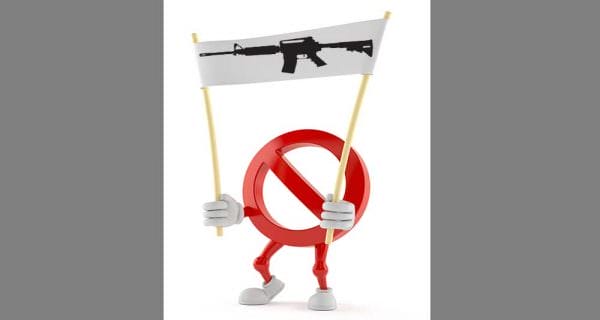
Gallup’s survey uses emotionally charged scare words, particularly with terms like “assault weapons ban.” The phrase “assault weapon” is a politically charged term that lacks a consistent legal or technical definition, making it ripe for misunderstanding. Respondents may conflate these firearms with fully automatic weapons or military-grade equipment, which are already heavily restricted.
This loaded terminology can lead to inflated support for bans based on confusion rather than genuine public sentiment. A more neutral phrasing—such as “semi-automatic rifles”—would likely yield very different results.
Live Inventory Price Checker
Failing to Account for Reactionary Support
Gallup itself admits that spikes in support for gun control tend to follow high-profile mass shootings and then decline over time. The October poll was conducted months after a high-profile shooting /assassination attempt on President Trump’s life, meaning public opinion may still have been influenced by emotional reactions rather than long-term policy preferences.
The poll’s timing also reflects the influence of media coverage. The anti-gun narrative promoted by mainstream outlets often amplifies temporary support for stricter gun laws, while pro-gun perspectives are underrepresented.
Once the media cycle moves on, support for gun control typically declines, as the poll’s historical trends clearly show.
Overweighting Urban & Liberal Demographics
Gallup heavily relies on cell phone interviews, which made up 80% of their sample. While cell phone-only respondents reflect changing communication trends, they also tend to skew younger, more urban, and more progressive. These demographics are more likely to support gun control than rural or older populations, who are less likely to be reached via cell phone polling.
Furthermore, the poll’s weighting to match national demographics may not adequately reflect the realities of the voting public, particularly in key battleground states where pro-gun candidates consistently outperform national polling expectations.
Misreading Election Results
This year’s election should have been a wake-up call for Gallup. Despite their poll showing 56% support for stricter gun laws and 52% support for an “assault weapons ban,” pro-gun candidates dominated at the polls. The disconnect between Gallup’s findings and electoral outcomes underscores the flaws in their methodology and interpretation.
Gallup’s results fail to account for the intensity of pro-gun voters’ opposition to gun control measures, which drives them to the polls in more significant numbers. Gun control advocates may voice support in surveys but lack the same political motivation to act on those views.
Conclusion: The Danger of Misleading Polls
Gallup’s continued missteps in polling on gun issues are not just an academic problem—they have real-world consequences. Misleading polls fuel anti-gun narratives and embolden lawmakers to pursue policies that lack true public support. They also alienate voters who see these polls as out of touch with their lived reality.
It’s time for Gallup and other polling organizations to reassess their methods, eliminate bias, and focus on measuring the opinions of actual voters rather than hypothetical respondents. Until then, their polls on gun control will remain a disservice to public discourse and a poor reflection of the American electorate’s views.

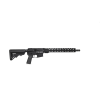
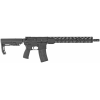


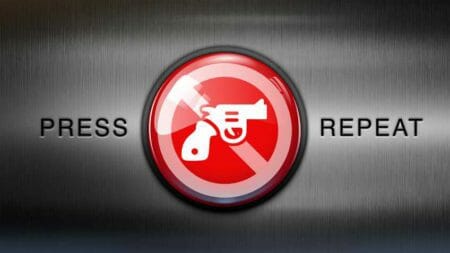
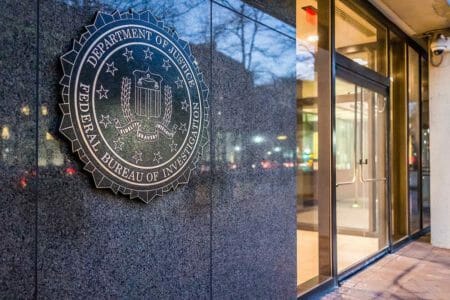

I haven’t agreed to participate in a poll or survey for decades. Many reasons for that; one is safety-I’m less likely to divulge personal information that could be used to rob, scam, or otherwise hurt me. For me, it’s a wise policy. And I think there are a whole lot of people out there with the same policy. That could mean that millions of people that are conservative, responsible gun owners and 2A supporters are never sampled at all. Although pollsters will never give this info, it would be interesting to see the number of “declined responses” included. Would a… Read more »
Hi, I am taking a survey about assault weapons and guns in general on the streets of America.
Republican: my guns are none of your business, click.
Constitutionalist: All guns should be legal, click.
Demoncrap: Oh nobody should have guns, they are dangerous and guns kill, and it’s so bad that our president had to make a new agency to prevent gun violence and all the doctors say it is a health epidemic. If we didn’t have any more guns there wouldn’t be anymore crime and Merica would be more safe for our children.
Any questions?
Gallup is in the pocket of gun control groups like Bloomberg’s Every Town. I think they might find a bit of Cash in that pocket as well!
demonrat commie pollsters pushing demonrat commie agenda.